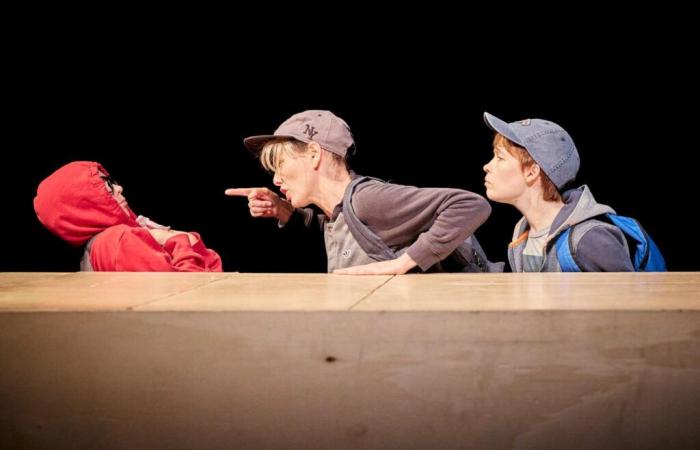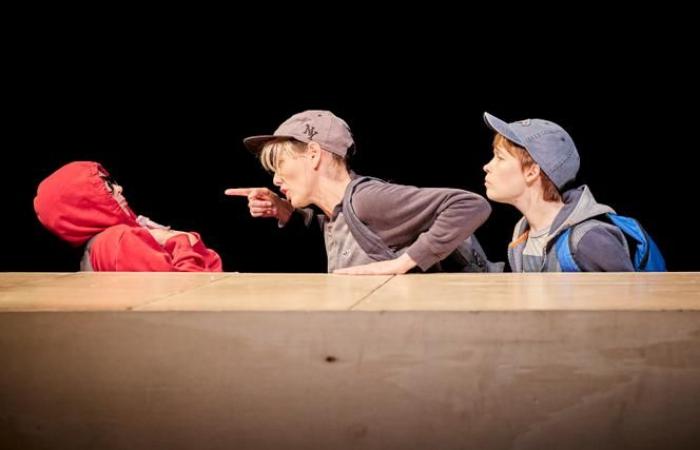On this last weekend of the All Saints’ Day holidays, Saturday November 2, the entrance hall of the Théâtre de la Ville, in Paris, is invaded by a crowd of grandparents with their grandchildren impatient to discover the new creation by the author and director David Lescot, I’m too green. Most are already unconditional fans of the little character of 6e D which he invented in 2015 to I’m too scared (a commission from the Théâtre de la Ville for its Childhood and Youth course) and re-staged in 2020 for I have too many friends (awarded by the Molière for young audiences in 2022).
Read the portrait (in 2012): David Lescot, theater facing History
Read later
After spending his summer vacation in Brittany in the anxiety of entering 6e (I’m too scared), then having discovered the joys and sorrows of group life at college (I have too many friends), the young hero of David Lescot (who does not have a first name unlike his companions) experiences, in this third part, the experience of leaving for green class on a Breton farm. We find all the colorful characters from the playwright’s fertile imagination: the 11-year-old boy, at the heart of the trilogy; his 3-year-old little sister; Basile, his classmate; Marguerite, his lover; Clarence, his rival. Added here: Valérie, 13 years old, the daughter of the farming couple who host the green class; Cameron, his brother; Yoneck, Valérie’s strange imaginary friend, with a bird’s head and a human body.
Three actresses and a box
David Lescot’s direction is cleverly minimalist, with a cast reduced to three actresses and a set that is limited to a large wooden box with trapdoors that open and close. The whole thing is based on a fairly impressive sense of transformation. Only one of the three performers plays only the main hero, the other two share all the other roles, moving from one to the other with astonishing speed and undeniable talent. Likewise, the central box is transformed, over the course of the show, into a classroom, a school bus, a dormitory, a stable, a henhouse, a field to cultivate, and a multitude of other places, thanks to the power of the public imagination.
Without ever taking himself too seriously and launching into a stupid or moralizing speech aimed at his young audience, David Lescot still conveys a few messages, implicitly behind situations that are often full of humor. Faced with the misadventures of all kinds that this 6 year old student is going throughe D, worthy heir of Little Nicolas, and his companions in misfortune (notably Basile, a clever mix between Alceste and Clotaire, two of Little Nicolas’ friends), we laugh a lot, we are often moved, and we also wonder sometimes : on our responsibility for the future of the planet, on global warming, on the different types of agriculture (reasonable or intensive).
You have 20.79% of this article left to read. The rest is reserved for subscribers.







